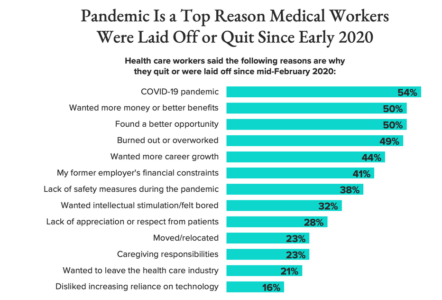Chinchilla shutdown, new Alzheimer’s treatments, meat makes you happy, and more
12 Oct 2021
Posted by Andrew Kantor
Meat eaters are happier
The headline says it all, really: “People who eat meat experience lower levels of depression and anxiety compared to vegans.” That’s based on what psychology researchers at the University of Southern Indiana found after reviewing 20 papers (“selected for methodologic rigor”) out of a pool of more than 7,000 looked at the psychological effects of vegetarianism.
Researchers found a significant association between meat consumption/abstention and the incidence of depression and anxiety, with individuals who consumed meat having lower average depression and anxiety levels than meat abstainers.
And, they said, the higher the study quality, the bigger this association.
A ‘thank you pharmacists’ video
Check out this video from APhA and Johnson & Johnson celebrating American Pharmacists Month — why not share it, or even put it on your website? (At least give it a like, huh?)
https://www.youtube.com/watch?v=wrdItjoQUVw
13 reasons why (they quit healthcare)
From the pandemic to increased use of technology, healthcare workers have a bunch of reasons for having lost their jobs (18% have quit, 12% have been laid off).
Interesting read, for sure, but the article has two big holes to note. First, “Covid-19 pandemic” is the top reason, but they don’t say what that means. Refusal to be vaccinated? Fear of catching it? Too many patients?
Second, as you’ll see in the chart, it counts people who were “laid off or quit.” So what did the people who were laid off blame? The pandemic? “Wanted more money”? I wasn’t laid off, honey, I quit because I felt bored.
Worth reading, sure, but keep in mind what it’s not saying.

Another fungus, another med
It’s becoming a pattern: “Traditional” medicine uses a particular plant or substance to treat a condition. Scientists examine it and suss out the mechanism — if possible, isolating and improving it. (Willow bark-to-aspirin is the poster child.)
The latest comes from Oxford University, where they’re working on the Himalayan fungus Cordyceps sinensis, “used in traditional Chinese medicine for hundreds of years to treat cancers and other inflammatory diseases.”
With a bit of a modern tweak so it doesn’t break down in the blood stream, they were able to superpower the active ingredient — cordycepin — to last longer and deliver 40 times the punch … in vitro, at least. But …
The scientists are now continuing to assess its performance in the Phase 1 clinical trial on patients with advanced solid tumors, and are planning to follow that up with Phase 2 trials to further evaluate its clinical potential.
Blue’s blues
Despite those classic ’80s commercials, once science gets involved we learn that no, there’s no point in using “blue-blocking” lenses when using your computer. They “did not alter signs or symptoms of eye strain with computer use relative to standard clear lenses.”

Alzheimer’s news
The latest potential Alzheimer’s treatment is (insert drumroll) bumetanide. Yep: The diuretic, it turns out, can affect the APOE4 gene, which is common in Alzheimer’s patients.
Could bumetanide then affect Alzheimer’s? If the UC San Francisco researchers were correct, “people already taking bumetanide should have lower rates of Alzheimer’s.”
Quick! To the Bat-Health-Records-Analyzer! Lo and behold, they found…
People who had the APOE4 gene and took bumetanide had a 35% to 75% lower prevalence of Alzheimer’s disease compared to those not taking the drug, the data showed.
You know what’s next: “further tests and clinical trials are needed.”
= MEANWHILE =
The FDA has given Roche’s IgG1 antibody gantenerumab the coveted “Breakthrough Therapy” designation, thanks to two trials that both showed “a significant reduction in brain amyloid plaque in Alzheimer’s patients.”
Ongoing phase III trials are expected to be completed by mid next year.
The Long Read: Nature and Nurture edition
Epigenetics: First it’s real, then it isn’t, now it is (but different). Read about “the misunderstood science that could shed new light on ageing.”
Chinchilla abuser shut down
Finally getting sick and tired of the poor treatment of its animals, a USDA administrative law judge has closed down the nation’s largest supplier of chinchillas* for medical research.
Not surprisingly, they’re the “prime model for studies of hearing, hearing loss, and ear infections,” so researchers may be forced to consider working with the British royal family.



